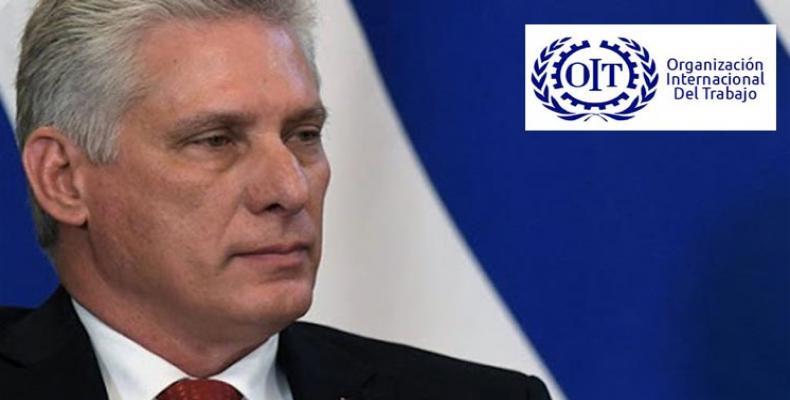Havana, July 7 (RHC)-- Cuba protects workers' rights in the midst of the complex scenario due to the COVID-19 pandemic and will share its experience in this field with the International Labor Organization (ILO).
Cuban President Miguel Díaz-Canel will participate tomorrow, Wednesday, in the virtual conference of World Leaders at the Summit of that international organization, which will deal with the economic and social impact of the new coronavirus pandemic.
During that meeting, the Cuban president will explain how the Caribbean island, since the arrival of the pandemic, adopted 36 measures in the field of labor that first seek to safeguard the health of all citizens and offer wage guarantees to those affected.
As part of these decisions and to facilitate the necessary physical distance, more than half a million people in Cuba work under the modality of distance work and teleworking, although some 146,000 employees of the state sector had their activities paralyzed as a result of the epidemiological context.
A total of 48,343 of them were relocated to other positions and 77,000 are at home with a guarantee of 60 percent of their wages.
In addition, Cuba's strategy to deal with COVID-19 includes separating potential patients and that is why more than 12,000 workers have been in isolation centers, but still receive 100 percent of their wages.
Most of the measures implemented are foreseen in the Labor Code, laws and decree-laws in force, but due to the complexity of the epidemiological scenario, the Cuban government has expanded them.
For example, mothers with small children were authorized to stay at home to care for their children without affecting their wages, as were people over 60 and with diseases like diabetes and hypertension, who also maintain a guaranteed salary.
The private sector, one of the most affected by the pandemic, was not left unprotected either, and 240,000 of these employees benefited from tax exemptions and were able to defer payment of their social security contributions.
Cuban authorities indicate that, due to their effectiveness, many of these actions, such as teleworking, are maintained now that the island is going through a process of gradual return to normalcy.
Cuba, as a founding country of the International Labor Organization, manifests its commitment to workers' rights, which is exemplified by the fact that it is a State party to the eight fundamental conventions of the Organization, according to official sources.


